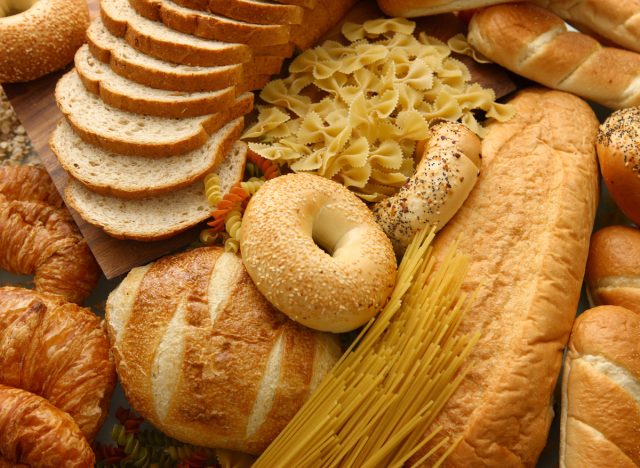When you're in your 20s, the idea of throwing your back out while lifting a couch or feeling joint pain from arthritis seems impossible for many. But by the time you hit 40, reality sets in and you have to keep an eye out for two primary types of arthritis: rheumatoid arthritis and osteoarthritis. According to the Mayo Clinic, anyone who loves high-impact exercise has to watch out for osteoarthritis. This type of joint damage occurs as a result of cartilage breakdown around joints and the pain stems back from bones rubbing up against other bones.
Even if you can escape this variety, you still have to dodge rheumatoid arthritis. This type develops as a result of the body attacking the cartilage around your joints, causing inflammation and swelling. All kinds of factors can lead to these conditions, and anyone with previous joint injuries or family histories of arthritis has to particularly watch out for arthritis later in life. As you age, your risk factor of developing arthritis also increases, but that doesn't mean you can't do something to lower your chances of living with this joint problem.
Obesity plays a major factor, and anyone overweight has a higher chance of contracting arthritis at some point in their life. By keeping track of what foods you eat, you can drastically reduce your risk of developing arthritis, especially after you hit 40. Eat This, Not That! caught up with a handful of dietitians to learn which eating patterns you need to break in order to keep your joints healthy and in good shape as you age.
Eating too much salt.

Eating too much salt can lead to a variety of serious problems, including gout. Even if you don't contract this type of arthritis, it can't hurt to cut down on your sodium intake during the day, especially as you hit 40.
"A high-salt diet is one of the worst things to eat if you have arthritis," Lindsey Delk, RD said. "Research shows that a high-salt diet can aggravate arthritis, so reducing your salt intake could help your arthritis symptoms."
Not eating enough whole foods.

"Of course, you should avoid using the salt shaker, but you can also lower the amount of salt in your diet by avoiding processed foods," Delk continued. "Choose whole, unprocessed foods and enjoy plenty of fresh fruits and vegetables."
By opting for whole foods and more produce, you can potentially stave off arthritis as you age, but all of your best efforts won't count for much if you decide to overindulge in one particular sweet ingredient.
Eating too much sugar.

Nothing sounds as decadent as having a dessert with every meal, but by eating too much sugar, you open yourself up to a higher risk of developing arthritis. Sugar's potential to cause inflammation makes it particularly tricky to eat—if you want to avoid arthritis after 40, your best bet lies in ditching as much of this ingredient as possible.
"As a registered dietitian who also controls her own rheumatoid arthritis symptoms and flare ups through diet, I recommend cutting out or reducing as many inflammatory foods as possible," says Trista Best, RD a registered dietitian at Balance One Supplements.
If you love a sweet treat every now and then, you can't go wrong with one particular zero-calorie sweetener that blows away the competition.
Packing your diet with gluten.

When you think of gluten, your mind might immediately think of stomach sensitivity. This component can do more harm than potentially upsetting your digestive tract. "Refined carbs and gluten are both highly inflammatory and can both trigger an arthritis flare or exacerbate the pain of a current flare-up," Best continued.
By watching your gluten intake, you can keep flare-ups to a minimum as you get older and ensure your joints feel great every day.
Overindulging in fast food.

Obesity is a major factor in developing arthritis later in life, and many can avoid this condition by curbing the eating patterns that lead there. One way to ensure you never have to deal with arthritis is by ditching fast fast food whenever possible.
"Fast food is high in calories and fat, which can lead to weight gain and obesity," Janet Coleman, RD a registered dietitian at TheConsumerMag said. "Obesity is one of the most common causes of arthritis."
No comments:
Post a Comment